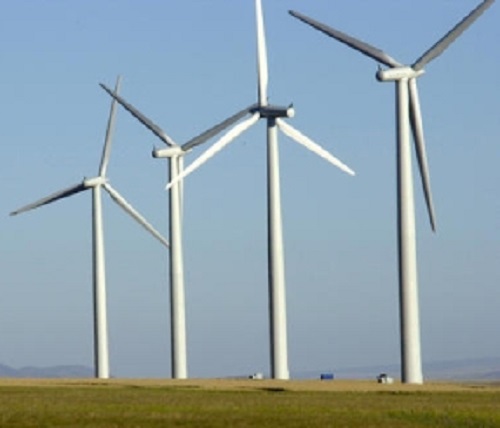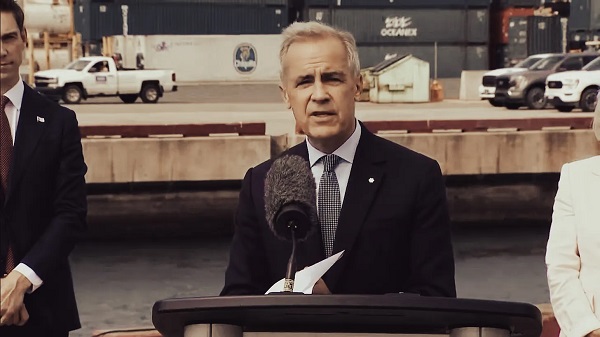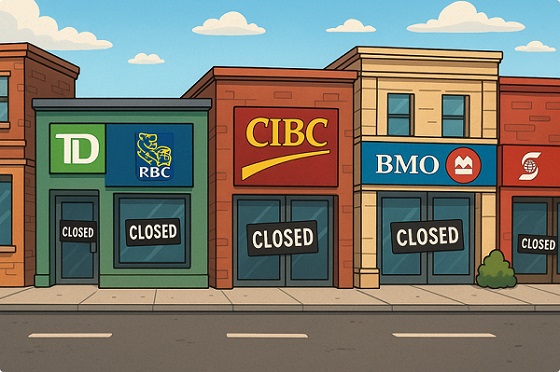Energy
British Columbia electric grid ‘at risk of shortfall’ as province limits natural gas, report warns

From LifeSiteNews
” B.C. could experience power shortfalls beginning in 2026 as the New Democratic Party (NDP) government continues to phase out natural gas. “
A report has found that the Canadian province of British Columbia’s electric grid is becoming increasingly inadequate as the government goes forward with plans to phase out natural gas power generation by 2030.
According to a December report by the North American Electric Reliability Corporation, British Columbia’s electric grid is “at risk of shortfall” in extreme weather conditions, such as the conditions which shut down its power grid last October.
“That should be a wake up call and should shake us out of our complacency that we have enough electricity to meet all of our potential desires, whether it’s electrification of vehicles, industry or home heating,” said Barry Penner, former B.C. cabinet minister and current employee of Resource Works.
The report warned that B.C. could experience power shortfalls beginning in 2026 as the New Democratic Party (NDP) government continues to phase out natural gas for power production.
Also in December, FortisBC, the province’s natural gas company, proposed to expand the province’s natural gas infrastructure in the ever-expanding Okanagan by building a new pipeline between Chute Lake and Penticton.
The suggestion was rejected by B.C. Utilities Commission, however, which continues to dismiss the warnings that the government’s plan poses a threat to energy reliability. Instead, the BCUC has argued that the demand for natural gas may decrease as the CleanBC climate plan banning natural gas space and water heating in new homes by 2030 is further implemented.
B.C. is at the forefront of the push to outlaw natural resources. According to their climate plan, newly constructed homes will be primarily heated with options like electrical baseboard heat, while a heat pump will be installed to kick in at -20 degrees Celsius. Additionally, the provinces is pushing for all new vehicles sold in 2035 to be fully electric.
B.C.’s climate plans come as last week Canadians across Alberta witnessed first-hand the instability and insufficiency of an electric power grid and renewable energy sources.
As LifeSiteNews previously reported, amid a cold snap in Western Canada that saw temperatures in some regions drop to nearly minus 50 degrees Celsius (-58 degrees Fahrenheit) over the weekend, the power grid in Alberta neared collapse due to inadequate production from renewable sources such as solar and wind.
In response to the situation, the neighboring province of Saskatchewan, which was also facing the same cold snap, announced it would be providing Alberta with electricity to stabilize the grid.
Many, including Saskatchewan Premier Scott Moe, noted that the incident served as a stark reminder of the potential dangers of a looming federal mandate calling for an eventual end to oil and gas power production in favor of less reliable wind and solar power.
“SaskPower is providing 153 MW of electricity to AB this evening to assist them through this shortage. That power will be coming from natural gas and coal-fired plants, the ones the Trudeau government is telling us to shut down (which we won’t),” wrote Moe on X (formerly Twitter) at the time.
During the outage, Canadians were also asked to delay charging their electric vehicles, which Conservative Party of Canada (CPC) MP Leslyn Lewis argued shows how Trudeau’s green agenda, which looks to ban sales of new gas-powered cars starting in 2035, is “unrealistic.”
The Trudeau government’s current environmental goals – which are in lockstep with the United Nations’ “2030 Agenda for Sustainable Development” – include phasing out coal-fired power plants, reducing fertilizer usage, and curbing natural gas use over the coming decades.
The reduction and eventual elimination of so-called “fossil fuels” and a transition to unreliable “green” energy has also been pushed by the World Economic Forum – the globalist group behind the socialist “Great Reset” agenda in which Trudeau and some of his cabinet are involved.
Even the recent energy crisis has not stopped the Trudeau government from pushing their radical agenda, which is apparently unaware or unsympathetic to Canadians suffering from the cold and power outages.
Just last week, Deputy Prime Minister Chrystia Freeland told attendees at the World Economic Forum’s (WEF) 2024 meeting in Davos that it is up to the government to “make” sure the “decarbonization” of Canada’s energy sector “happens.”
However, some western provinces have declared they will not follow the regulations but instead focus on the wellbeing of Canadians.
Both Alberta and Saskatchewan have repeatedly promised to place the interests of their people above the Trudeau government’s “unconstitutional” demands, while consistently reminding the federal government that their infrastructures and economies depend upon oil, gas, and coal.
“We will never allow these regulations to be implemented here, full stop,” Alberta Premier Danielle Smith recently declared. “If they become the law of the land, they would crush Albertans’ finances, and they would also cause dramatic increases in electricity bills for families and businesses across Canada.”
Saskatchewan Premier Scott Moe has likewise promised to fight back against Trudeau’s new regulations, saying recently that “Trudeau’s net-zero electricity regulations are unaffordable, unrealistic and unconstitutional.”
“They will drive electricity rates through the roof and leave Saskatchewan with an unreliable power supply. Our government will not let the federal government do that to the Saskatchewan people,” he charged.
Energy
A Breathtaking About-Face From The IEA On Oil Investments
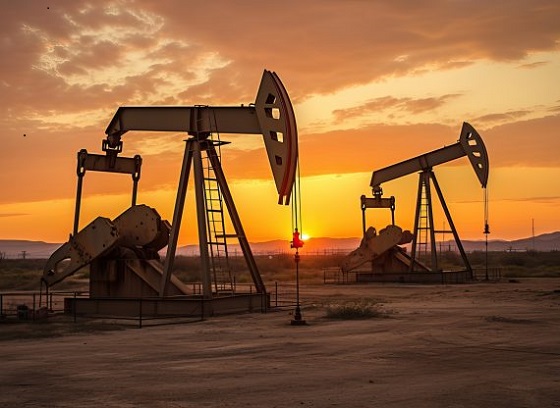

From the Daily Caller News Foundation
Surveying the landscape of significant energy news each morning is a daily exercise for any energy-focused writer. It’s hard to write competently about energy unless you have a grasp on current events in that realm.
On Tuesday, one story’s headline almost leapt off the page as I was engaging in that daily task. That headline atop a story at industry trade publication Upstream Online reads, “Oilfield decline will hasten without $540 billion annual investment, says IEA.” In support of that thesis, International Energy Agency chief Fatih Birol says in a statement that, “Decline rates are the elephant in the room for any discussion of investment needs in oil and gas, and our new analysis shows that they have accelerated in recent years.”
Oh, you don’t say.
To anyone familiar with the past pronouncements emanating from Mr. Birol and the IEA, this amounts to one of the most breathtakingly ironic about-faces ever seen. After all, it was only four years ago that Birol and his IEA analysts informed the world that new investments in exploration and development of additional crude oil resources were no longer needed or desired thanks to the glorious expansion of wind and solar capacity and electric vehicles that were destined to end the need to use oil and gas by the year 2050.
In May, 2021, the IEA published a report that urged every national government to immediately halt new investments in efforts to find and produce new reserves of oil, saying, “Beyond projects already committed as of 2021, there are no new oil and gas fields approved for development in our pathway, and no new coal mines or mine extensions are required. The unwavering policy focus on climate change in the net zero pathway results in a sharp decline in fossil fuel demand, meaning that the focus for oil and gas producers switches entirely to output – and emissions reductions – from the operation of existing assets.”
On Aug. 4 of that same year, Birol himself told a meeting of Catholic Church leaders that “there is no need to invest in oil, gas or coal.”
On Oct.14, 2021, Birol doubled down on that particular sophistry in a post on Twitter, with this claim: “There is a looming risk of more energy market turmoil. Oil & Gas spending has been depressed by price collapses in recent years. It’s geared toward a world of stagnant or falling demand.”
Of course, the problem with the IEA’s thesis then is the same as now: Demand for crude oil has been neither stagnant nor falling. It has in fact continued to rise apace with global economic expansion, continuing a trend that has characterized the industry’s growth path for well over a century now. Economic growth has always driven rising demand for oil, just as plentiful supply of oil at affordable prices drives further economic growth. It is and always has been a mutually sustaining relationship.
Finally, IEA appears to have reached a point at which it is willing to accede to this enduring reality.
In my previous piece here, I detailed the apparent move by Birol and the IEA to shift back to the agency’s original mission to serve as a provider of reliable, fact-based information about the global energy picture. It was a mission the agency consciously abandoned in 2022 in favor of serving as a cheerleader for an aspirational energy transition that isn’t really happening. That return to mission appears to have been motivated by Energy Secretary Chris Wright’s threat to pull U.S. funding from the Agency if it continued down this propaganda pathway.
The IEA report published on Tuesday finally acknowledges the troubling under-investment in exploration and development of new reserves that has plagued the industry for more than a decade now as banks and investment houses discriminated against investing in fossil fuel projects.
Regardless of the reasons behind this latest shift, it is encouraging to see the IEA once again living in the world as it exists rather than the fantasy realm advocated by the global political left.
David Blackmon is an energy writer and consultant based in Texas. He spent 40 years in the oil and gas business, where he specialized in public policy and communications.
Business
Ottawa’s so-called ‘Clean Fuel Standards’ cause more harm than good

From the Fraser Institute
To state the obvious, poorly-devised government policies can not only fail to provide benefits but can actually do more harm than good.
For example, the federal government’s so-called “Clean Fuel Regulations” (or CFRs) meant to promote the use of low-carbon emitting “biofuels” produced in Canada. The CFRs, which were enacted by the Trudeau government, went into effect in July 2023. The result? Higher domestic biofuel prices and increased dependence on the importation of biofuels from the United States.
Here’s how it works. The CFRs stipulate that commercial fuel producers (gasoline, diesel fuel) must use a certain share of “biofuels”—that is, ethanol, bio-diesel or similar non-fossil-fuel derived energetic chemicals in their final fuel product. Unfortunately, Canada’s biofuel producers are having trouble meeting this demand. According to a recent report, “Canada’s low carbon fuel industry is struggling,” which has led to an “influx of low-cost imports” into Canada, undermining the viability of domestic biofuel producers. As a result, “many biofuels projects—mostly renewable diesel and sustainable aviation fuel—have been paused or cancelled.”
Adding insult to injury, the CFRs are also economically costly to consumers. According to a 2023 report by the Parliamentary Budget Officer, “the cost to lower income households represents a larger share of their disposable income compared to higher income households. At the national level, in 2030, the cost of the Clean Fuel Regulations to households ranges from 0.62 per cent of disposable income (or $231) for lower income households to 0.35 per cent of disposable income (or $1,008) for higher income households.”
Moreover, “Relative to disposable income, the cost of the Clean Fuel Regulations to the average household in 2030 is the highest in Saskatchewan (0.87 per cent, or $1,117), Alberta (0.80 per cent, or $1,157) and Newfoundland and Labrador (0.80 per cent, or $850), reflecting the higher fossil fuel intensity of their economies. Meanwhile, relative to disposable income, the cost of the Clean Fuel Regulations to the average household in 2030 is the lowest in British Columbia (0.28 per cent, or $384).”
So, let’s review. A government mandate for the use of lower-carbon fuels has not only hurt fuel consumers, it has perversely driven sourcing of said lower-carbon fuels away from Canadian producers to lower-cost higher-volume U.S. producers. All this to the deficit of the Canadian economy, and the benefit of the American economy. That’s two perverse impacts in one piece of legislation.
Remember, the intended beneficiaries of most climate policies are usually portrayed as lower-income folks who will purportedly suffer the most from future climate change. The CFRs whack these people the hardest in their already-strained wallets. The CFRs were also—in theory—designed to stimulate Canada’s lower-carbon fuel industry to satisfy domestic demand by fuel producers. Instead, these producers are now looking to U.S. imports to comply with the CFRs, while Canadian lower-carbon fuel producers languish and fade away.
Poorly-devised government policies can do more harm than good. Clearly, Prime Minister Carney and his government should scrap these wrongheaded regulations and let gasoline and diesel producers produce fuel—responsibly, but as cheaply as possible—to meet market demand, for the benefit of Canadians and their families. A radical concept, I know.
-
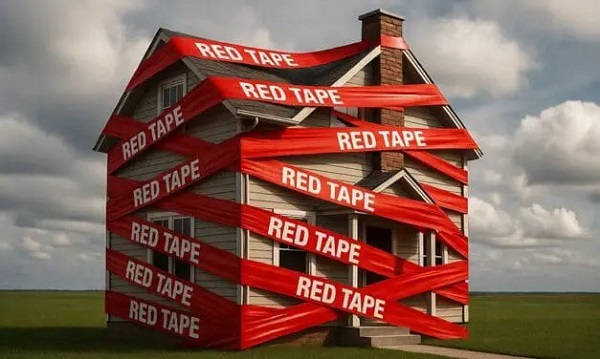
 Business2 days ago
Business2 days agoRed tape is killing Canadian housing affordability
-

 Artificial Intelligence2 days ago
Artificial Intelligence2 days agoUK Police Chief Hails Facial Recognition, Outlines Drone and AI Policing Plans
-

 Health2 days ago
Health2 days agoMAiD should not be a response to depression
-

 2025 Federal Election2 days ago
2025 Federal Election2 days agoPost election report indicates Canadian elections are becoming harder to secure
-
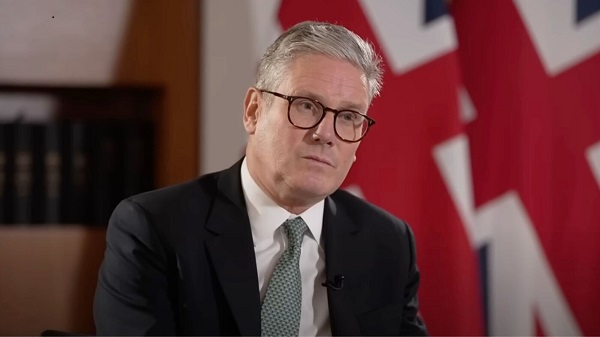
 International2 days ago
International2 days agoTrump to Confront Starmer Over UK Free Speech Laws During State Visit
-

 Duane Rolheiser2 days ago
Duane Rolheiser2 days agoUnite the Kingdom Rally: demonstrators take to the streets in historical numbers to demand end to mass migration in the UK
-

 Crime2 days ago
Crime2 days agoOlder man arrested at Kirk shooting admits to protecting real gunman
-

 MAiD2 days ago
MAiD2 days agoFamous Canadian children’s author Robert Munsch says he plans to die by euthanasia



